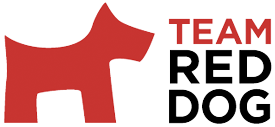
Master the Hire with Behavioral Interviewing
Someone may look impressive on paper, but still not be a good fit. How many times have you hired someone, only to realize three months later that you may have missed a few things during the interview process?
With that in mind, many staffing agencies in Seattle, WA and across the country have put stock in a behavior-based model of interviewing, believing that a person’s past and present behavior offers the best indication of how they will behave in the future. In fact, behavioral interviewing is three to five times more likely to accurately predict job success when compared to traditional interview tactics.
What is behavioral interviewing?
Behavioral interviewing is a structured interview process that focuses on gathering specific, job-related, real-world examples of a candidate’s past behavior on previous jobs. It centers on framing interview questions around a candidate’s real-life experience.
When done correctly, behavioral interviewing can:
• Prompt answers based on facts and real situations instead of hypotheticals.
• Ensure more unrehearsed answers.
• Reduce a candidate’s inclination to exaggerate.
• Minimize the impact of personal impressions that can result in bias.
• Provide criteria for making objective hiring decisions.
Making behavior-based interview questions
The first step in building behavior-based interview questions is to define the competencies for success in the role. Competencies are those skills that are considered ‘softer,’ like communication, teamwork, or adaptability. Not all competencies can be learned on the job and even the most qualified person on paper may lack the competencies to allow them to thrive.
Then, create a behavioral question or two for each competency required for the role. Remember that many behavior interview questions don’t end with a question mark. They begin with phrases like:
• Tell me about…
• Give me an example of …
• Describe…
• Think back to…
The rest of the question should ask about a situation, time, or example that demonstrates the competency. For example, if you’re assessing a candidate’s conflict management skills, the questions could delve into successes the candidate had with a difficult employee or coworker, resolving a conflict, or how they faced conflicting priorities.
These types of questions stimulate stories and answers that relate to the candidate’s past performance and experiences. Probing and asking follow-up questions to the questions can provide a deeper understanding of the situation and can give the candidate a chance to appraise their decisions.
Examples of follow-up questions can be:
• If you could do it over again, how would you handle the situation differently?
• What prompted you to handle the situation as you did?
Converting traditional interview questions to behavioral questions
In many cases, more traditional interview questions can be tweaked to become more effective with a behavioral twist:
• Traditional: “What are your strengths?”
Behavioral: “Describe a time when one of your strengths enabled you to be successful where you might not have been otherwise.”
• Traditional: “How do you deal with an angry or upset customer?”
Behavioral: “Tell me about the most difficult customer you had to deal with and how you handled it.”
• Traditional: “How do you manage stress?”
Behavioral: “Tell me about a time you did not handle a stressful situation well.”
With these tips on behavioral interviewing, you are ready to try it out!
If you’re still feeling a little unsure, our staffing pros are expert at utilizing behavioral questions to determine your perfect hire. Call us today at (425) 214-1517 or email us at hello@teamreddog.com.
